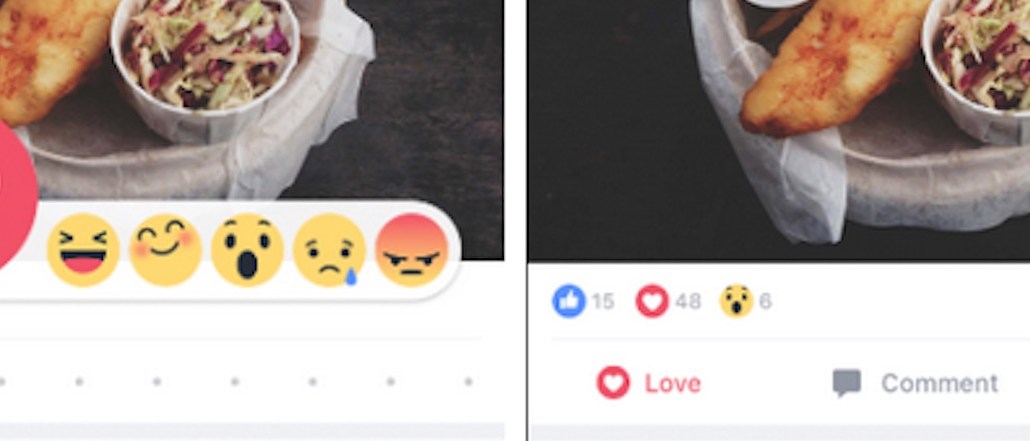
Facebook’s emoji-like “wow,” “haha” and “love” may have yet to catch up to the “like” button, but brands and marketers are watching Facebook Reactions closely.
Brands including Benefit and Pampers are tapping the 3-month-old reactions to inform ad campaigns, using them as proxies for emotions. This can be used not just to gauge the success of brand campaigns but also to develop strategies for new efforts by figuring out what terms and themes resonate.
When Pampers posted its #ThanksBaby video ahead of Mother’s Day on its Facebook page last week, for instance, it paid close attention to the reaction buttons that accompanied it at the bottom. The video received over 43,000 reactions: Nearly 40,000 of these were“likes,” and over 3,200 were “love” reactions.
Benefit Cosmetics also used Facebook Reactions to assess the viability of its Facebook Live effort. “Tipsy Tricks” is the makeup brand’s weekly live stream where a guest and a host choose a beauty topic and dish out advice while sipping wine — and was given the green signal after the brand monitored the reactions that its first episode got. Benefit also pays close attention to the reactions while choosing topics to feature in its videos.
“We weren’t sure if it would go over well, but with the positive comments and reactions, we were excited to keep rolling out our Facebook live series,” said Claudia Allwood, senior director of U.S. digital marketing at Benefit cosmetics. “We haven’t leveraged Reactions as a call-to-action in our posts yet — but that’s not to say that we wouldn’t.”
Shannon Truax, head of social media at agency iCrossing, realized how reactions enable brands to harness granular data that may not always be immediately obvious when she ran content for an auto client around potholes. The post prompted so many “love” reactions that the agency and the brand are now developing an entire campaign around potholes.
“We didn’t realize how many “‘love’ reactions it would get,” said Shannon Truax, head of social media at agency iCrossing. “It wasn’t even about the brand or promoting a product, but rather an experience that resonated. It’s a good reminder that brands should think about what consumers want first.”
Chevrolet was one of the first brands to jump on reactions in an ad promoting the 2016 Malibu in February. But beyond posts on their own pages, marketers are wary of relying on reactions as metrics for their paid ads on Facebook. This is because Facebook treats all reactions equally in its ad reports and doesn’t break them down into individual reactions, said Kevin Del Rosario, associate director of social at Huge. Advertisers who want to see a breakdown of reactions can only do so in their page insights.
“One thing that’s really slowed us down is that Facebook analytics haven’t been that supportive,” he said. “We are currently using an outside tool and also waiting for it to catch up with users more.”
Facebook would have to share the data and learnings it is acquiring with brands so they can target users more intelligently based on those learnings, agreed Ivonne Kinser, director of digital strategy at Avocados From Mexico. “It would definitely help brands to take a more personalized approach in their communication strategies — for example, in the future, we could target only those who ‘love’ or ‘wow’ a post, and leave out those who reacted with ‘sad.’”
More in Marketing

YouTube’s upmarket TV push still runs on mid-funnel DNA
YouTube is balancing wanting to be premium TV, the short-form powerhouse and a creator economy engine all at once.

Digiday ranks the best and worst Super Bowl 2026 ads
Now that the dust has settled, it’s time to reflect on the best and worst commercials from Super Bowl 2026.

In the age of AI content, The Super Bowl felt old-fashioned
The Super Bowl is one of the last places where brands are reminded that cultural likeness is easy but shared experience is earned.





